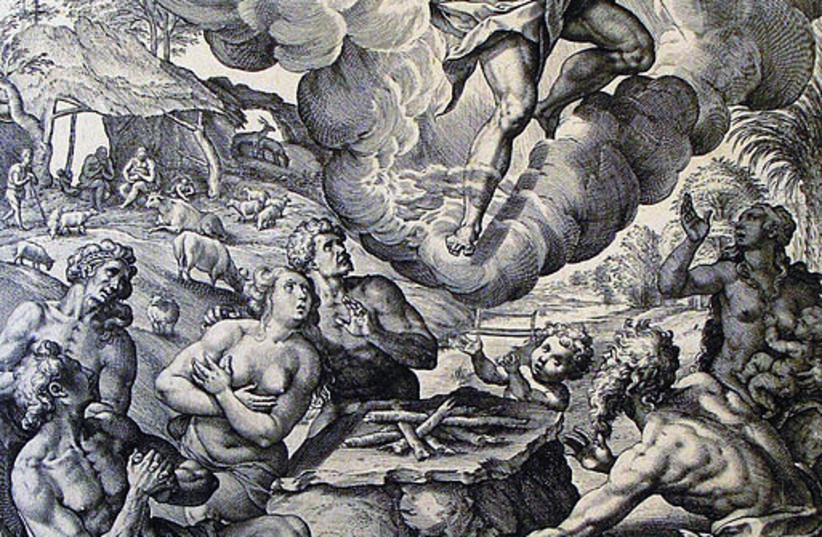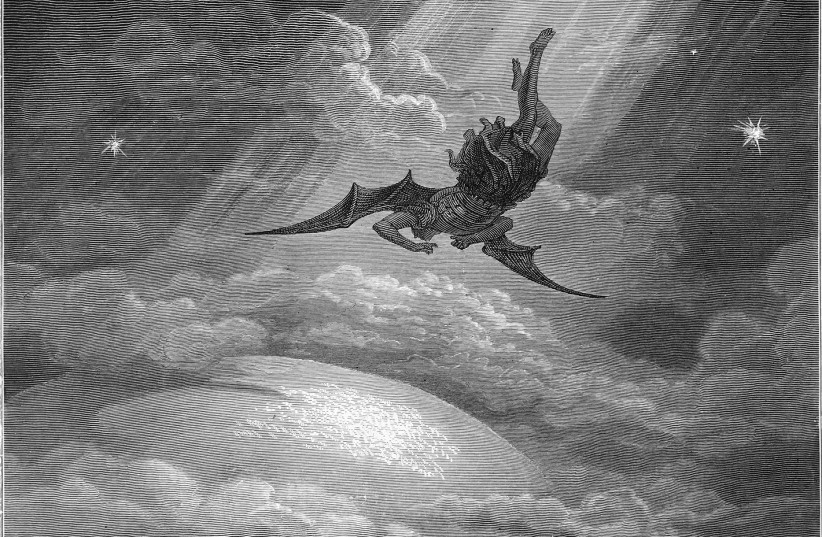The Book of Enoch is one of the most well-known examples of biblical Apocrypha, being an ancient Hebrew text dealing with the apocalypse, demons, angels and the Nephilim.
Historically, the author of the text is unknown, but they are dated to around 200 BCE and evidence exists showing that ancient Jews and early Christians were very much aware of it.
Today, it is considered apocryphal by Jews and Christians alike, though Ethiopian Jews and some Ethiopian Christians consider it canonical.
But what is the Book of Enoch and what does it tell us about heaven, angels and demons? Why was it removed from the Bible and is now apocryphal? What did Jesus say about it?
Here's what you need to know.

What is the Book of Enoch: Summary
The Book of Enoch consists of five sections: The Book of Watchers, the Similitudes of Enoch, the Astronomical Book, the Book of Dreams and the Epistle of Enoch.
The first book details the birth of the Nephilim, the giants, following the fall of the angels known as the Grigori, or Watchers.
The second book is about the Messiah and the end times.
The third book describes the stars, sun and moon and more, described by one of the angels, and provides a type of calendar set to the sun, a solar calendar. Notably, this is contradictory with the lunar calendar Judaism traditionally uses.
The fourth book tends to describe a vision of the history of the people of Israel, going down for a long time past the Flood, Exodus, First and Second Temples and more, up until the end times and the messianic era.
The final book again describes the history of the world and the future, as well as teachings for the next generation. It also describes the natures of the righteous and the sinners.
Why was the Book of Enoch removed from the Bible?
The short answer was that it was never in the Bible to begin with.
A longer answer, though, would be to address why it was never canonized into the Bible in the first place.
Regarding the Torah, the exact reason why is a subject of some debate, but there are some theories.
In particular, one theory that is often cited is the fact that the Book of Enoch describes fallen angels, a matter of considerable tension.
For example, it is believed by some that the Nephilim, mentioned in the Book of Enoch, are the descendants of a union between humans and fallen angels who disobeyed God. This is further described in Midrash, a fact that isn't disputed and is even mentioned in the Talmud in Nidah 61a and Yoma 67b.
What is disputed is how literally one should take it, since in Judaism, the free will and agency of angels isn't really a factor. Angels in Judaism are seen as just messengers with no autonomy. Even Satan is but another angel doing God's work.
Indeed, the fact that angels have no free will and cannot have any autonomy of their own is very important to Judaism, and that had been clarified in debates between Jews and some early Christians.

Who wrote the Book of Enoch?
The true authorship of the Book of Enoch is unknown, but it is believed to be the work of a number of different authors over hundreds of years, with each portion having been added separately.
Traditionally, however, it is attributed to Enoch, the great-grandfather of the biblical Noah.
Enoch himself is mentioned in the Bible as existing and is the seventh of the 10 patriarchs who existed before the Flood.
There is another figure named Enoch mentioned in the Bible, with the other one being the son of the biblical Cain.
While this is the extent of his mentions in canonical Jewish texts, Enoch is mentioned more in Christian texts, as well as Mormon texts.
As a figure in the Abrahamic tradition, Enoch is also believed to have been mentioned in Islam, and some identify him with the prophet Idris.
Tradition also claims that Enoch wrote two other Books of Enoch, which are very different and not considered related.
In the third Book of Enoch, however, it was claimed that Enoch was actually the angel who spoke the word of God, Metatron, and became a figure in some kabbalistic thought.
What does Jesus say about the Book of Enoch?
Despite the fact that the Book of Enoch would have been known in his lifetime, Jesus Christ never mentions or references the Book of Enoch in the New Testament.
However, some of his apostles do, and references do exist in the New Testament.
Who still believes in the Book of Enoch today?
The Book of Enoch is still accepted among some religious communities in Africa, most notably the Beta Israel community of Jews in Ethiopia.
Here, the entirety of the text is still preserved in the language Ge'ez, though most scholars agree it was originally written in either Hebrew, Aramaic or both.
However, no Hebrew fragments of the Book of Enoch have survived to this day.
There are remnants of the Book of Enoch in other languages, however, specifically in Latin, Greek and Aramaic.
Arguably the Aramaic fragments discovered as part of the Dead Sea Scrolls in Qumran are the most famous.
This makes sense since they are some of the oldest surviving manuscripts of biblical and apocryphal texts.
These included several other non-canonical texts aside from the Book of Enoch, such as the Book of Tobit, the Book of Jubilees, the Book of Sirach and the Book of Giants.
